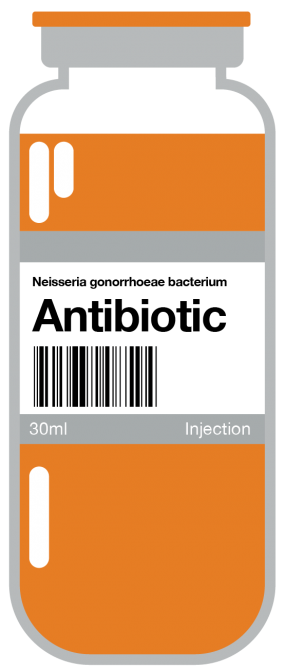AR Gonorrhea a Public Health Threat








People who are sexually active can get gonorrhea, a common sexually transmitted infection (STI) that can affect the genitals, rectum, and throat. It can be treated and cured, but it is highly skilled at outsmarting the antibiotics used to treat it.
Learn More about GonorrheaDrug resistance, also known as antimicrobial resistance, happens when germs like bacteria and fungi develop the ability to resist, and even defeat, the drugs designed to kill them. That means the germs are not killed and continue to grow. The bacteria that cause gonorrhea has grown resistant to nearly every drug ever used to treat it, and it’s only a matter of time until it becomes resistant to the last available cure.
Learn More about Drug-Resistant Gonorrhea


Honest and open conversations, both with your provider and sexual partner(s), are an important part of keeping yourself and your partner(s) safe from infection.
The sooner you are treated for an STI, the less chance an infection will impact other parts of your health.
Knowing your sexual history and any symptoms you have will help your provider to provide the best possible treatment.
It’s important to feel comfortable and heard, so take the time to find the right fit for you.
The more aware you are of how to prevent infections, the better prepared you will be.
If you are concerned your partner has an infection, talk to your provider about EPT, allowing them to receive treatment without evaluation.
Be clear with your partner about the number of sexual partners you have.
Find out when they were last tested for STIs.
Tell your partner if you have an STI (like gonorrhea or HIV), even if you’re currently taking medicine to treat those infections.
Talk with your partner(s) BEFORE having sex so you can both make informed choices about your sexual health.
Being respectful and nonjudgmental can create the space for a more productive conversation, and if you want, lay the groundwork to keep those conversations going.